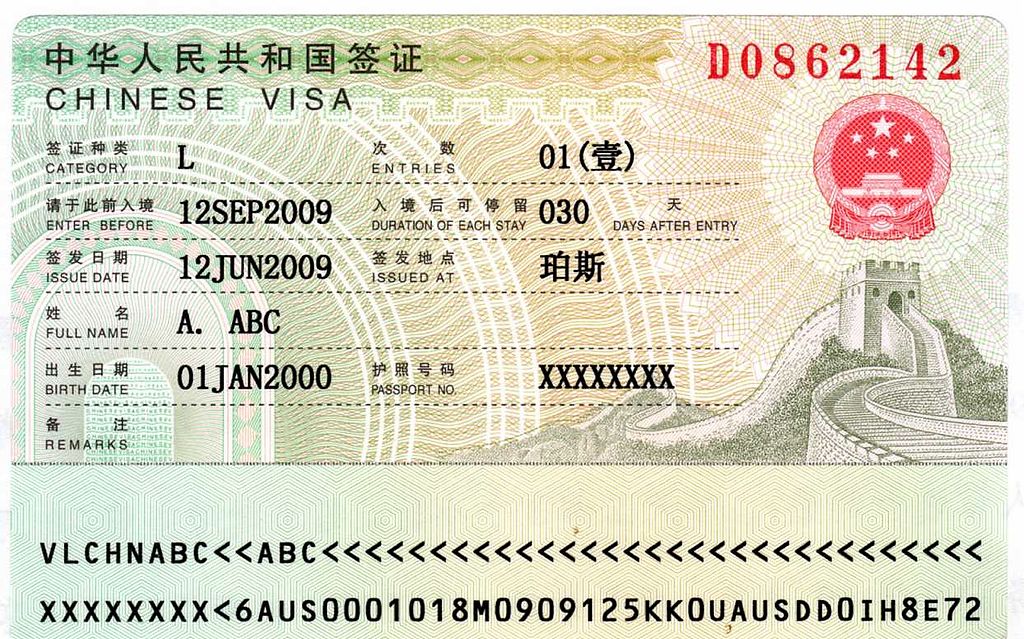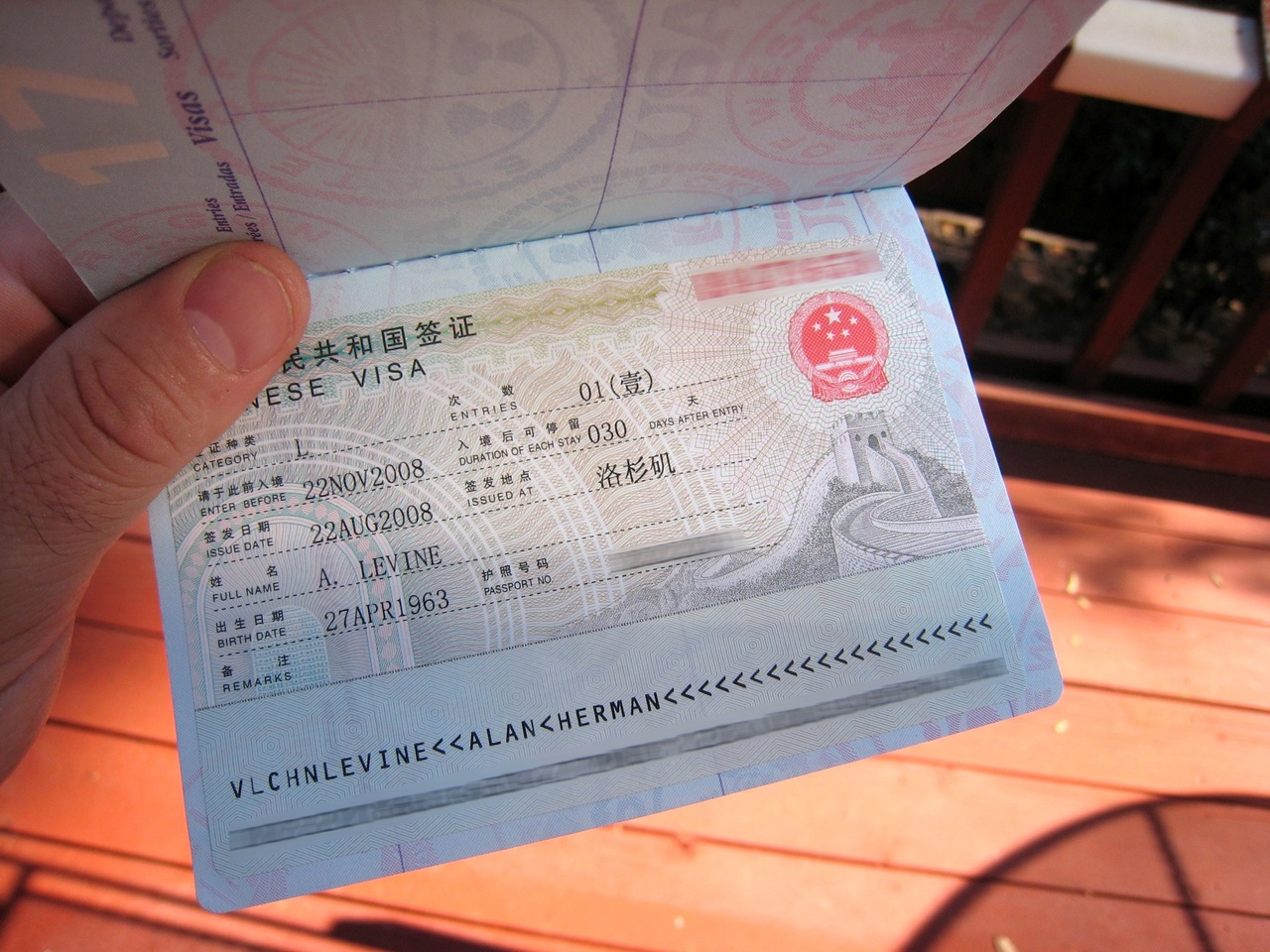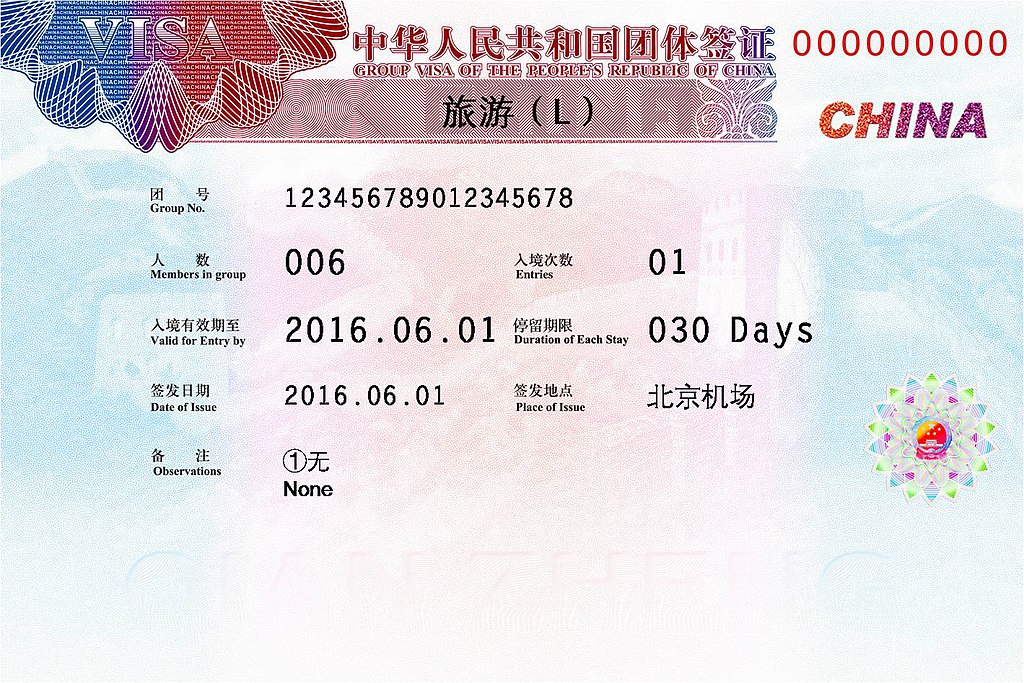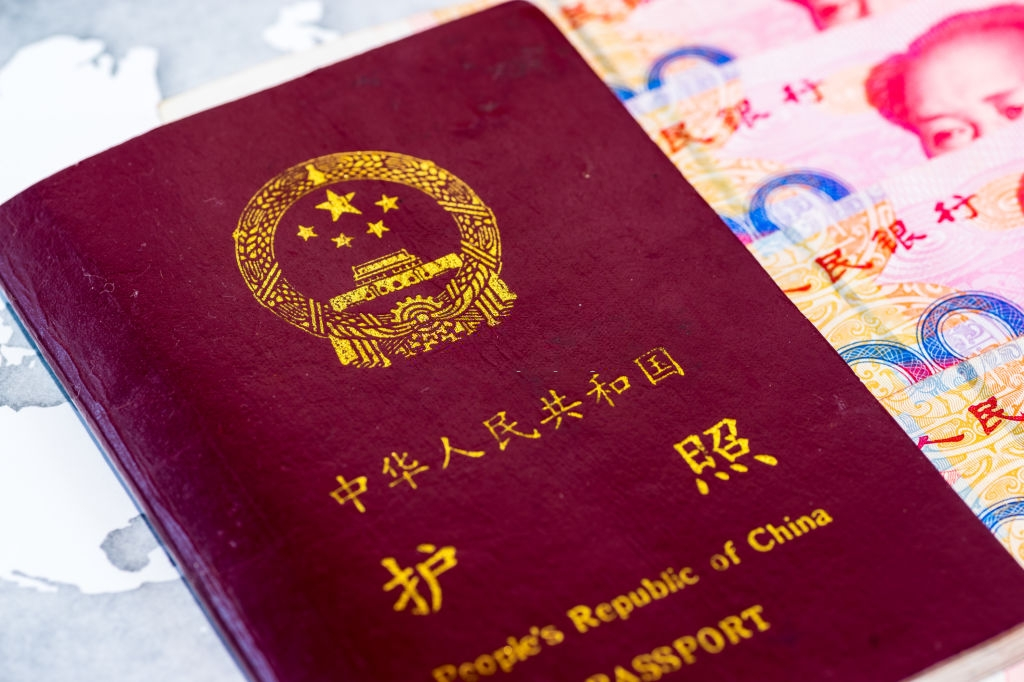![Complete Guide To Applying For A China Visa [100% Fuss-FREE] Complete Guide To Applying For A China Visa [100% Fuss-FREE]](https://travelright.com/wp-content/uploads/2020/01/Chinese-Visa--768x512.jpg)
There are plenty of reasons that contribute to your headache when traveling. But the common struggles that many faced when visiting China is the visa applying process. With the limited knowledge of whether you need a visa or the types of China visa, applying can be quite nerve-wracking.
Hence, here’s an intensive guide to help you apply for a China Visa easily even if you’re absolutely a beginner.
Table of Content:
- 1. Is Visa required to travel to China?
- 2. How to get a Visa to China?
- 3. Types of Visa and its requirements
- 3.1 Tourist Visa (L)
- 3.2 Business Visa (M)
- 3.3 Non-Commercial Visit Visa (F)
- 3.4 Student Visa (X1/X2)
- 3.5 Employment Visa (ZA)
- 3.6 Private Visit Visa S1 & S2
- 3.7 Family Visit Visa (Q1 & Q2)
- 3.8 Transit Visa (G)
- 3.9 Group Visa
- 3.10 Crew Visa
- 4. How to submit your Visa application?
- 5. Visa Fees: How much to pay for a Chinese Visa?
- 6. Frequently Asked Questions
Is Visa required to travel to China?

Yes, you might or might not need a travel visa to China depending on your nationality and status. But, did you know that China, or the official name, the People’s Republic of China, is the world’s most populated country?
As the third-largest or the fourth-largest country by area, China is governed by the Communist Party of China. Hence, the state exercises jurisdiction over 22 provinces, five autonomous regions, four direct-controlled municipalities (Beijing, Tianjin, Shanghai, and Chongqing), and the special administrative regions of Hong Kong and Macau. And if you’re puzzling why every visitors need a visa in China could be because of political disagreements or due to disease and vaccination concerns.
So, if you’re planning a longer stay in China, it’s best to know how to apply for a visa properly. As visitors are deemed to obtain a legitimate China Visa from the authorized officials except for visa-exempt countries.
However, the government of the People’s Republic of China allows holders of normal passports issued by some countries to travel to Mainland China for tourism or business purposes for up to 15, 30 or 90 days without having to obtain a visa. Residents of Hong Kong and Macau, as well as visitors of other nationalities, requires to obtain either a visa or a permit prior to arrival.
While some other ports of entry of China only allow certain nationalities to visit a specified region within 72 or 144 hours with the condition of transiting.
How to get a Visa to China?

A vital thing to do is to check whether you need a visa before starting the following process. As long as you are eligible for China’s visa-free policies, you don’t need a visa.
But, bear in mind that documents like your passport, in and out transportation tickets and sometimes, sufficient funds still need to be prepared for an immigration check. Hence, if you’re unsure of which country is exempted from obtaining visas, here’s a list for you.
Visa-free visit for ordinary passports from these countries:
| 90-days visa-free visit | 60-days visa-free visit | 30-days visa-free visit | 15-days visa-free visit |
|---|---|---|---|
| • Bosnia • Herzegovina • San Marino | • Mauritius | • Bahamas • Barbados • Belarus • Ecuador • Fiji • Grenada • Qatar • Serbia • Seychelles • Tonga • United Arab Emirates | • Brunei • Japan • Singapore |
Before actually getting a visa, you must know which visa you have to acquire. Regardless if you’re there for business, to travel, to study, or for other reasons? Generally, different travel purposes acquire different visas.
Documents Required For Your Visa
Once you’ve figured which visa you need, prepare the required documents. The general documents required for all types of visas include a passport and visa application form attached with a recently-taken photo.
Other supporting documents are also required, but they vary according to the visa you’re applying for. For instance, if you apply for a tourist L visa, the supporting documents will refer to round-trip tickets, hotel bookings or an invitation letter from your China travel agency.
Don’t worry, if you’re unsure about which documents you need, check out the requirements for different visas, below.
Types of Visa & Its Requirements

There are a total of 10 types of visas all together – each of different purposes. If your purpose matches the description, then that’s what you should rightfully apply.
Tourist Visa (L)
The (L) Visa is issued to those who intend to go to China for touring and sightseeing purposes only. While single-entry, double-entry or multiple-entry are available for tourists. However, the duration of stay per visit normally is 30-60 days. But if you’re a US passport holder, you’re entitled to multiple entries of up to 10 years.
If a tourist visa is what you need, then the required documents would be, your round-trip ticket booking record and proof of a hotel reservation, or an invitation letter issued by a relevant entity or individual in China with the following information:
i. The applicant’s information (full name, gender, date of birth, etc.)
ii. Itinerary of the planned visit and additional information (dates of arrival and departure, places of visit, relations between the applicant and the inviting entity or individual, financial source for expenditures, etc.)
iii. The inviting entity or individual’s (name, contact number, address, official stamp, a signature of the legal representative or the inviting individual) information.
Business Visa (M)
This visa is issued to those who intended to visit China for commercial and trade activities. M Visa is issued for single-entry, double-entry or multiple-entry. This visa can be issued up to 10 years. The duration of stay per visit is normally 30-60 days based on a particular Chinese Consulate.
Here are the documents you’ll need – documents on the commercial activity issued by a trade partner in China, trade fair invitation or other invitation letters issued by relevant entity or individual. The invitation letter should contain the same information as described above for a tourist visa.
Non-commercial Visit Visa (F)
Before the M visa was introduced, an F visa had been used as a business visa. F visa has now changed for non-commercial visits. So, those who intend to go to China for research, lecture, scientific, cultural exchange and study tour, will be issued an F visa. Although, an F-visa (for non-trade or non-commerce) is usually issued for single or double entry only.
The average duration of stay per visit is 30-90 days. And the document you’ll need is an invitation letter issued by a relevant entity or individual in China, with details as described above for a tourist visa.
Student Visa (X1/X2)
Those who have been admitted to a Chinese college will be issued this visa. There are two subdivisions of the Student Visa; X1 and X2. X1 is issued to foreign students who come to China to study for more than 6 months. While X2 is issued to those who come to China with the same purpose but for a period of fewer than 6 months.
Besides, the X2 visa is only issued for single-entry. X1 visa can be issued for multiple entries with a validity of up to 5 years. When applying, you’ll have to bring along your original and photocopy of the Admission Letter from the school you’re admitted to or other entities from the People’s Republic of China. For those applying for X1 visa with an intended stay of more than 6 months, you should also provide the original and photocopy of “Visa Application for Study in China” (Form JW201 or Form JW202).
Employment Visa (Z)
The Employment Visa will be issued to those who have obtained employment to work in China. Do note that a government-issued work permit or employment license is a must. While Z visa is for single-entry only.
Once you’ve entered, you’ll have to register and apply for a residence permit from the Public Security Bureau (police station), within 30 days. A residence permit is valid for multiple entries. Z visa is also issued to people conducting a commercial performance in China. When you apply you’ll have to bring one of the following work permits:
1. Foreigners Employment Permit issued by the Ministry of Human Resources and Social Security of the PRC.
2. Registration Certificate of Resident Representative Offices of enterprises of foreign countries (regions) issued by Chinese authorities of industrial and commercial administration.
3. An approval document for commercial performances issued by the Chinese government authorities for cultural affairs.
4. Invitation Letter to Foreigners for Offshore Petroleum Operations issued by National Offshore Oil Corporation.
Private Visit Visa S1 & S2
S1 Long Term
The S1 visa is issued to those who intend to go to China to live with their immediate family members that are working or studying in China, or to those who also intend to go to China for other private affairs. “Immediate family members” refers to spouses, parents, sons or daughters under the age of 18 or parents-in-law, with original proof of kinship.
If your intended stay exceeds 180 days, then you must request this visa. S1 visa is issued for single-entry only. Holders of S1 visa shall, within 30 days from the date of entry, register and apply for a residence permit in Public Security Bureau (police station). As mentioned, a residence permit is valid for multiple entries.
S2 Short Term
Those who intend to visit their family members who are foreigners working or studying in China, or to those who intend to go to China for other private matters such as visiting friends, divorce, inheritance, adoption, marriage or medical services, shall be issued this visa.
The intended duration of stay in China must not exceed 90 days per visit. You will also need proof of kinship if you’re visiting family members. S2 visa is usually issued for multiple-entry and US passport holders will be entitled to issue multiple-entries of up to 10 years. The documents required are:
1.) An invitation letter from a foreigner who stays on a work Z or student X visa in China.
2.) A photocopy of the inviting individual’s passport and also a residence permit.
3.) Proof of kinship such as marriage certificate, birth certificate, certification of kinship issued by Public Security Bureau or notarized certification of kinship (original and copy)
For those who are visiting for private affairs other than a family reunion, documentation identifying the nature of the private affair should be provided to the consular officer.
Family Visa Q1 & Q2
Q1 Long Term
Q1 visa is designed for Chinese descendants or foreigners who are spouses of Chinese citizens. Issued to those who are family members of Chinese citizens or of foreigners with Chinese permanent residence and intend to go to China for a family reunion, or to those who intend to go to China for the purpose of foster care – with the intended duration of stay that exceeds 180 days. “Family members” refers to spouses, parents, sons, daughters, spouses of sons or daughters, brothers, sisters, grandparents, grandsons, granddaughters and parents-in-law. Typically, original proof of kinship and also an interview may be required. Q1 visa is issued for single-entry only. Similar to Z, S1, as well as S2 visa, holders of Q1 Visa, must register and apply for a residence permit in Public Security Bureau (police station), within 30 days of entering.
Q2 Short Term
While the Q2 visa is designed for Chinese descendants or foreigners who are spouses of Chinese citizens. It is useful to those with the intention of visiting their relatives who are Chinese citizens residing in China or foreigners with permanent residence status in China. You will be granted a duration of stay in China of up to, usually, 120 days per visit.
A Q2 visa is regularly issued for multiple-entry. However, multiple-entries of up to 10 years is only for US passport holder.
The documents needed include:
1.) An invitation letter issued by a Chinese citizen or foreign citizen with a Chinese permanent residence permit.
2.) Photocopy of Chinese ID or foreign passport and permanent residence permit
3.) For Q1 visa only – proof of kinship such as marriage certificate, birth certificate, certification of kinship issued by Public Security Bureau or notarized certification of kinship (original and copy.)
Transit Visa (G)
Those who have a flight transit in China must apply for this visa. An onward air, train or ship ticket with a confirmed date and seat to the destination country or region is required.
Group Visa

A Chinese Group Visa is a particular type of visa that is issued to a tourist group that comprises at least five members who must travel together in China. Typically, Chinese Group Visa is issued on a separate sheet instead of on the individual passport.
Documents needed:
1.) One Official Group Visa Authorization Letter from any head office of state-owned tour operators such as China Travel Service (CTS), China International Travel Service(CITS), or China Youth Travel Service (CYTS), or Chinese National Tourism Bureau, or any Chinese provincial Tourism Bureau.
Side note: Official Visa Notification Letter is normally issued by the provincial-level tourism bureau or it’s authorized agency or company. Usually, it’s your organizer’s responsibility that’ll take care of it.
2.) One copy of the legit Passport copy of each passenger. Actual passports and photos are not mandatory for the group visa application. However, your passport must have at least 6 months of validity left.
3.) One group visa list. Also, it is crucial to fill out the list strictly according to the requirements indicated.
Crew Visa
Issued to foreign crew members utilizing means of international transportation including; aircraft, trains, ships, and motor vehicle drivers engaged in cross-border transport activities. Also issued to accompanying family members of crew members. Multiple-entry up to 5 years is only for US passport holders.
Documents needed:
1.) A valid passport as well as a copy of its information page: Your valid passport must have at least six (6) months of remaining validity with at least one blank visa page in it.
2.) Application form: One completed Visa Application Form (Q1)
3.) Photo: one recent photo of 2*2 square inch (black & white or color is acceptable) glued or stapled on the application form.
4.) Non-US passport bearers shall provide documents that entitle them to reside or work for an extended period of time in the US.
5.) First-time applicants whose former nationality was Chinese, shall write down his Chinese name in the application form and submit his original Chinese passport and the photocopy of the information page of the passport. An applicant who was formerly Chinese and has acquired a new US passport, if there is a Chinese visa in the old passport, shall submit his old US passport or the photocopy of the Chinese visa.
6.) Formal application letter issued by the airline or shipping company;
7.) The original and photocopy of the employee ID of the applicant.
How to submit your Visa application?
Visit the Chinese embassy, consulate or Chinese Visa Application Center (CVASC) which serves your residence area. You can either show up in person or ask an agent to do this for you.
In some consular offices and CVASCs, mail service is also available. However, if you’re wondering how long it takes to process, the normal processing time is four working days including the day you submit the application and the day you collect.
Do note that there might be additional non-working days for Chinese public holidays. By paying an additional fee you can usually have your application processed faster. However, it is usually possible to have your application processed overnight.
As for visa collection, it should be ready in the following afternoon. Although some offices might offer a same-day service if you arrive at the office early. All in all, it is always best to apply for it in advance in case of any delays.
Visa Fees: How much to pay for a Chinese Visa?

China visa fees vary enormously according to your nationality, the number of entries required, the country you are applying in, and also whether you’re willing to top up for an express service.
Generally, it cost $140 for an American citizen. While, expect to pay between $30 to $90 if, for citizens of other countries. As for how you can pay, it varies depending on your preferences and also the rules and regulations set by the local authorities. Some require you to pay upfront, while some accept payment once you collect the visa.
In most countries, the embassy and consulate charge the fees according to the number of entries on the issued visa. Usually, the more entries you get, the more expensive your visa is. While for some countries, like the US, UK, and Canada, citizens need to pay a fixed fee regardless of the entry frequency. Also, bear in mind you need to prepare to pay extra fees for the express services.
Things to take note:
The fees listed here only apply to those who apply in their own country rather than in a third country.
The application fees of China Visa on arrival and the cost of getting or renewing a visa at the exit and entry administration of the local PSB within China are the same as a single-entry visa, ie., CNY 168 for most countries.
Once you’ve completed the steps above, you should be able to obtain your visa!
Frequently Asked Questions

Difference between a Passport and Visa
Some of you might wonder what is the difference between a passport and a visa. Well, the difference between a passport and a visa is that a passport is issued to a country’s citizens for international travel and also for identification purposes.
While the main difference between a visa and a passport is that a visa is an endorsement placed within a passport that grants the holder official permission to enter, leave or stay in a country for a specified time period.
Where does a Chinese Visa issue?
Also, for your own information, China visas are issued both outside China, by the Chinese diplomatic missions, and in China, by the Exit and Entry Administrations (EEAs) of the county-level Public Security Bureaus (PSBs).
Can I use a Chinese visa to enter Hong Kong?
In order to enter China, however, a non-Chinese national should apply to the visa-issuing authorities outside China for a Chinese visa. Because Hong Kong and Macau maintain their independent border control policies, ordinary.
Hence, China visas are valid for Mainland China only and are not valid for Hong Kong or Macau. So, travelers must apply for separate visas for Hong Kong or Macau should they require one for traveling to these regions.
When should I apply for a visa to China?
Depending on your schedule, it’s advisable that you apply for a visa to China about a month before your intended date of entry. Though the Chinese visa is typically valid for 3 months, it’s however not ideal to apply too early. That’s mainly because your visa tends to expire before your departure.
So, if applying a visa is the reason that stopped you from visiting China, fears not. This comprehensive guide promises to make any visa applying process as simple as possible. Now, let’s travel right with our expert guide on how to find cheap last minute flights to your favourite travel destinations!